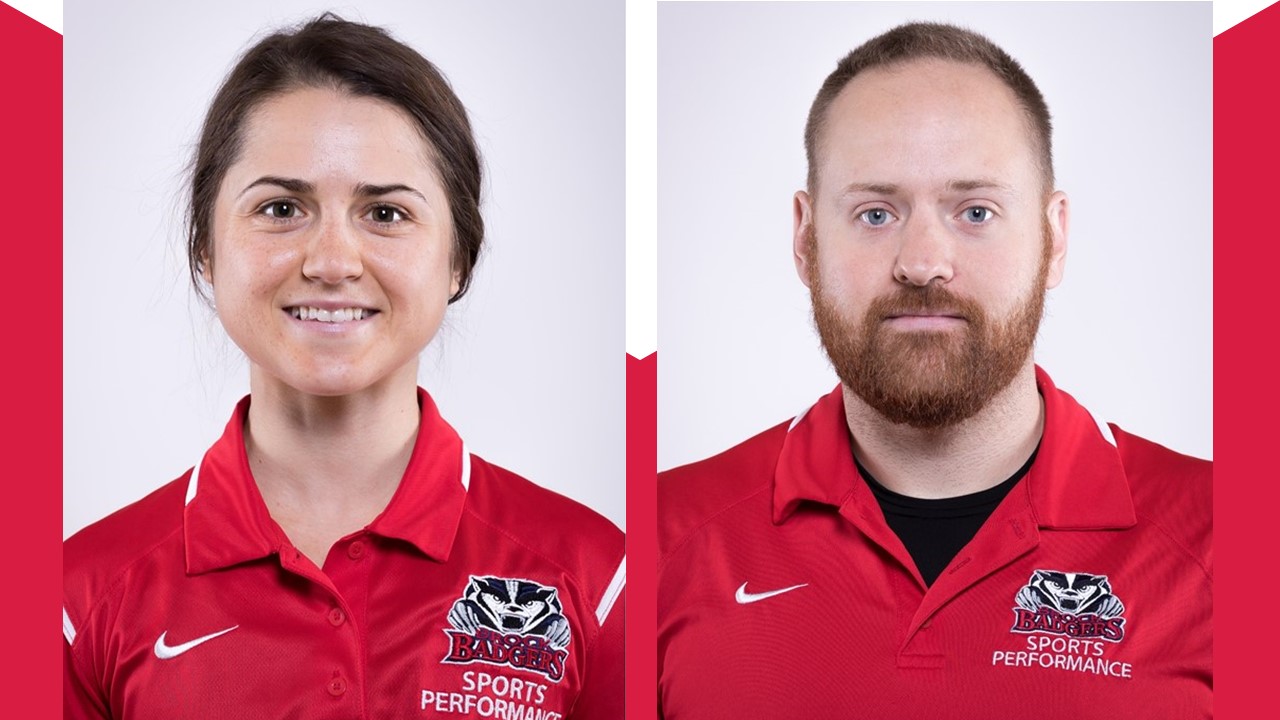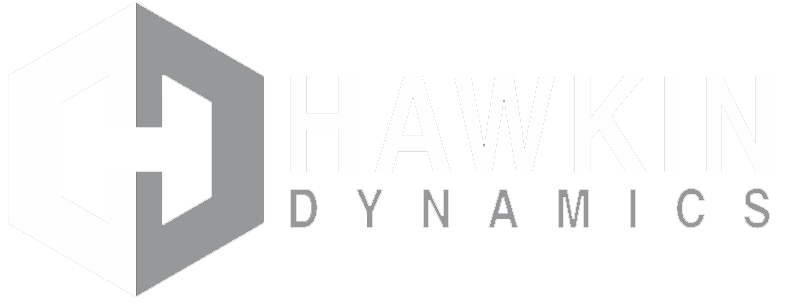Rising Stars from Brock University – Vicki Bendus and Dave McDowell

Vicki Bendus
CSCA – Why did you become an S&C coach?
VB – I never thought I’d be a coach. I actually thought I didn’t like coaching when I was first exposed to it as a hockey camp instructor in high school. It was exhausting and, man, those kids don’t listen…And yet, here we are.
Like many S&C coaches, my journey began as an athlete. I started with my first S&C coach at age 12. My dad reached out to a young, up and coming coach in Collingwood, Sarah Applegarth, who ended up making an incredible impact on me as a person and an athlete. Reflecting now, I was incredibly fortunate to have had Sarah coach me from such a young age. She was so far ahead of the curve on how she helped facilitate my LTAD and my love of training. Down the road, when I was playing NCAA hockey, I started to look into training strategies I could implement to give me a competitive edge, but still had never considered S&C.
My undergraduate degree was in Biology and I wrote the MCAT during 3rd year with the intent to go to medical school. After graduation, I spent 3 years playing full-time with the National Women’s Hockey team. In 2014, I began my masters at Brock so I could return to structured education while still playing hockey. There were two scenarios that arose during my masters that led me to S&C. First, I started working as a teaching assistant and fell in love with teaching. Second, as part of my thesis project, I began running the S&C for the Brock Men’s and Women’s hockey teams. I quickly discovered that coaching is teaching. The opportunity to share knowledge and engage with the athletes in ways that got them excited about training and improving as athletes was incredible. From that point on, I saw S&C as my career path.
CSCA – Entering the industry, what do you think was your greatest need?
VB – Because I was a full-time athlete until I was 24, I entered the industry as a professional later than most. I lacked any coaching experience besides working with the Brock hockey teams and training a handful of athletes on the side. I did a summer S&C internship at McMaster that summer, at an age where most of the interns were several years younger than me. There is no educational substitute for coaching hours on the floor, especially under one of the best coaches in the industry, Steve Lidstone, who I am still extremely fortunate to work under at Brock. As I reflect now, I see a tremendous need for university level S&C courses with both lecture and applied components to be integrated within kinesiology or exercise science undergraduate programs. Some Canadian universities are progressive and have lead S&C coaches teaching credited courses and labs to students. I hope to see others follow.
CSCA – To date, what has been your greatest learning as an S&C coach?
VB – One thing I’ve learned about S&C is how important it is to be critically reflective at each step of the training process. From the interactions with the athletes, sport coaches, to how a training session was executed, to determining appropriate KPIs, to how that data is being collected, and how the athletes are trending toward those KPIs. I find taking the time to honestly evaluate whether each of those is moving in the right direction and whether changes should be implemented is a process I have learned greatly from and will continue to do.
Dave McDowell
CSCA – Why did you become a Strength & Conditioning Coach?
DM – Like most strength and conditioning coaches, I was very active growing up. I played a variety of organized sports and played with other kids in the neighbourhood, building forts, playing road hockey, skateboarding, etc. As I became a teenager, I began working out with friends at the YMCA. This became a big part of our lives as we would read muscle magazines, follow the routines from the magazines, and try to become as strong as possible.
Once I started high school and was introduced to football, my love for fitness and strength development really started to thrive. My training focus shifted to becoming a better football athlete. As I reached the end of high school, I set my sights on playing football at university. I asked my high school football coach about playing at the next level, and he told me I was too small. My coach’s feedback was probably the catalyst in spiking my interest in strength and conditioning for sports performance. Having a competitive mentality, I was determined I would prove him wrong and show him that I could play at the university level.
In two years, I went from being “too small” to starting (over a 5th-year senior) as an offensive lineman in my first year at the University of Toronto. I dedicated myself to training hard and smart, and as a result, I accomplished what felt like a massive feat. I wanted to pay that experience forward by helping other athletes reach their goals. I knew that lifting in the weight room paid dividends in my athletic development, so I decided to study Physical and Health Education with the desire of becoming a strength and conditioning coach.
The combination of an active upbringing with friends and using training to overcome adversity ignited my passion for problem-solving human performance.
CSCA – Entering the industry, what do you think was your greatest need?
DM – As an introverted problem solver, I naturally prefer to figure things out on my own. However now, I’ve realized the benefit of asking questions. As a developing coach, I should have sought out a mentor, someone to challenge my thought processes about the fundamentals of strength and conditioning, including periodization, exercise prescription, speed & agility, as well as the soft skills of dealing with athletes and coaches on a daily basis. As I entered the industry, I lacked a role model to emulate and bounce questions off of. I failed to realize the value of forming a relationship with a mentor or participating in an established internship program, which could have expedited my learning curve.
In my first role as a strength and conditioning coach, I was forced to develop through trial and error because I lacked the luxury of leaning on a mentor and learning from their mistakes and triumphs. I had already been working in the S&C industry for several years full time before I realized this limitation and found an unpaid position to learn from other professional coaches. For two years, I interned in the early mornings then worked full-time in the afternoons/evenings. This internship that I missed out on at the beginning of my career allowed me to ask more questions, and further develop my own processes.
CSCA – To date, what has been your greatest learning as an S&C coach?
DM – At the onset of my strength and conditioning career, I was obsessed with the science of training, elaborate sets and rep schemes, and complicated exercises and methods. Then I had a huge turning point during a lecture at the Canadian Athletics Strength and Power Conference, when one of the speakers was talking about the developmental journey towards becoming an expert coach. The speaker explained that the younger coach is generally a collector, as they are searching for more exercises, more methods, and more variation until they get to a point where they feel as though they know everything. The coach on their way to mastery, however, begins to eliminate things from their process that are no longer needed and narrows their methods down to a few things that they are very confident in. The presenter finished by stating, you can truly become a master coach when you have nothing left to throw out.
The lesson I took from this was that as a coach, we should consistently be working to simplify and develop our process. Streamlining the process also allows us to truly master our planning, exercise prescription, and communication. A thorough understanding of our process will allow us to produce and replicate results repeatedly, there will always be times when we need to evolve, taking in new information, discarding old information, and assimilating it into our developed processes. For me, developing a robust flexible framework of our why’s and processes is the key to delivering an effective training program.






